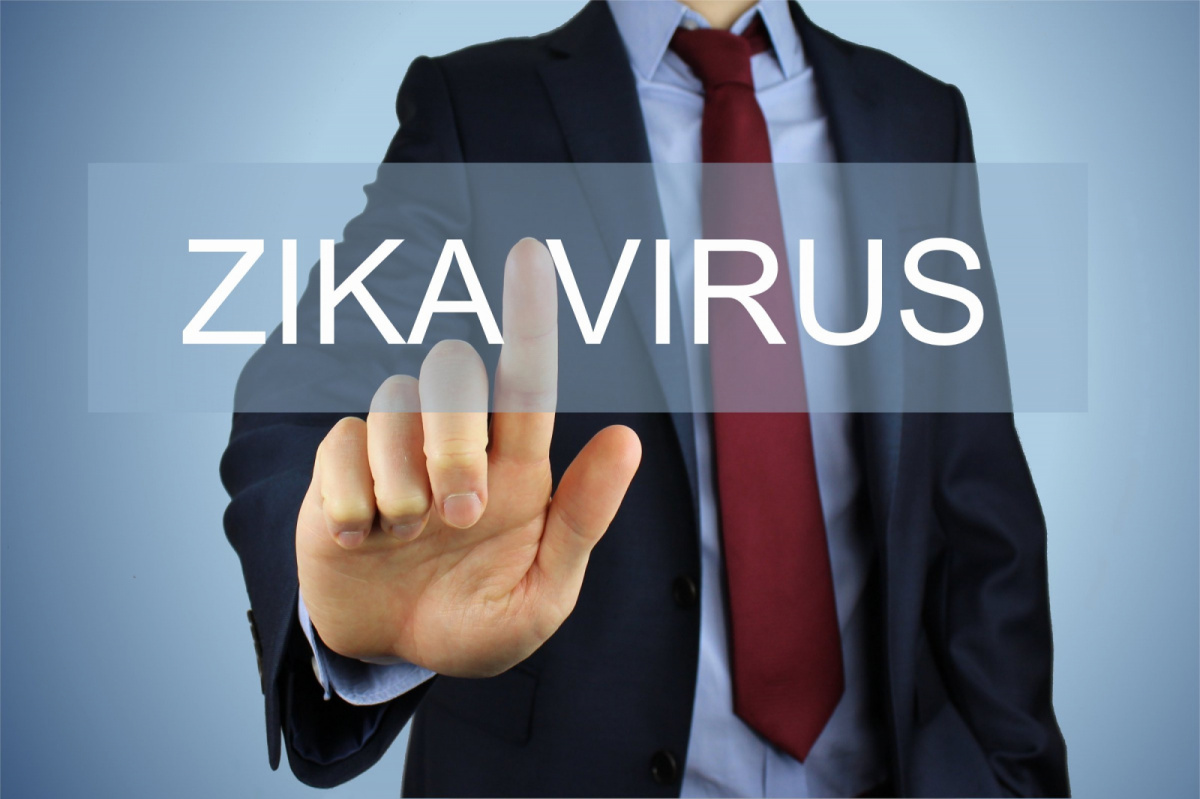Zika virus is a mosquito-borne virus that garnered significant global attention in recent years due to its association with microcephaly and other serious birth defects in babies born to infected mothers. It is a member of the Flaviviridae family, which includes other well-known viruses like dengue, yellow fever, and West Nile virus. Zika virus is primarily transmitted to humans through the bite of infected Aedes mosquitoes, specifically Aedes aegypti and Aedes albopictus. In this comprehensive article, we will delve into the various aspects of Zika virus, including its history, transmission, symptoms, diagnosis, treatment, prevention, and its impact on public health.
1.Historical Background: Zika virus was first identified in 1947 in the Zika Forest of Uganda, where it was found in rhesus monkeys. The virus was subsequently isolated from mosquitoes in the same region in 1948. The first confirmed human cases of Zika virus infection were reported in the 1950s in Uganda and the United Republic of Tanzania. However, the virus remained relatively obscure until the 21st century when it spread to different parts of the world, causing a global health concern.
2. Transmission: Zika virus is primarily transmitted to humans through the bite of infected Aedes mosquitoes, with Aedes aegypti being the main vector. These mosquitoes are commonly found in tropical and subtropical regions, making these areas particularly susceptible to Zika virus outbreaks. In addition to mosquito-borne transmission, Zika can also spread through other means, including:
A. Sexual Transmission: Zika virus can be sexually transmitted from an infected person to their sexual partners, even if the infected person does not exhibit symptoms. This has raised concerns about the potential for sexual transmission, particularly in areas with active Zika virus transmission.
B. Vertical Transmission: Pregnant women infected with Zika virus can transmit the virus to their developing fetuses, which can result in a range of birth defects, including microcephaly. This mode of transmission is a major concern during outbreaks.
C. Blood Transfusion and Organ Transplant: There have been cases of Zika virus transmission through blood transfusions and organ transplants. Blood banks and transplant centers have implemented measures to screen for Zika virus to prevent these modes of transmission.
3. Symptoms: The majority of Zika virus infections are asymptomatic, meaning that infected individuals do not display any noticeable symptoms. However, when symptoms do occur, they are generally mild and can include:
A. Fever: Many Zika-infected individuals experience a low-grade fever, often accompanied by chills and a general feeling of malaise.
B. Skin Rash: A rash, often characterized by red spots and itching, can develop. This rash may appear on the face, trunk, arms, and legs.
C. Joint and Muscle Pain: Joint pain and muscle pain, which can be severe, are common symptoms of Zika infection. This has led to the virus being associated with a condition known as Zika fever.
D. Conjunctivitis: Some individuals infected with Zika virus may develop redness and inflammation of the eyes, a condition known as conjunctivitis.
Symptoms typically begin 2 to 7 days after being bitten by an infected mosquito and can last for several days to a week. Most people recover fully without any lasting effects.
4. Complications: While Zika virus infection is usually mild, it has been associated with several serious complications, particularly in pregnant women and their developing fetuses. The most concerning complication is microcephaly, a birth defect in which a baby is born with an abnormally small head and brain. This can lead to severe developmental issues, intellectual disabilities, and other health problems. Zika virus has also been linked to other neurological disorders, including Guillain-Barré syndrome, which can cause paralysis and other severe symptoms.
5. Diagnosis: Diagnosing Zika virus infection can be challenging because the symptoms are often non-specific and similar to those of other mosquito-borne illnesses. Healthcare providers typically use a combination of clinical evaluation, patient history, and laboratory testing to confirm Zika virus infection. Diagnostic tests for Zika virus include:
A. Polymerase Chain Reaction (PCR): PCR tests can detect the genetic material of the virus in blood, urine, and other body fluids. This is the most accurate method for diagnosing Zika infection, especially in the first week after symptoms appear.
B. Serological Tests: Blood tests, including enzyme-linked immunosorbent assays (ELISA) and plaque reduction neutralization tests (PRNT), can detect antibodies against Zika virus. These tests are useful for confirming a past infection but may not be reliable for diagnosing acute cases.
6. Treatment: There is no specific antiviral treatment for Zika virus infection. Instead, treatment focuses on managing the symptoms and providing supportive care. This typically includes rest, staying hydrated, and taking pain relievers like acetaminophen for fever and pain. Non-steroidal anti-inflammatory drugs (NSAIDs) and aspirin should be avoided, as they may increase the risk of bleeding complications in Zika-infected individuals.
In the case of severe complications, such as Guillain-Barré syndrome or microcephaly in newborns, specialized medical care may be required. Pregnant women infected with Zika virus will receive close prenatal care and monitoring to assess fetal health.
7. Prevention: Preventing Zika virus infection is crucial, especially for pregnant women, as the virus can have devastating consequences for their babies. Preventative measures include:
A. Mosquito Bite Prevention:
Use insect repellent containing DEET, picaridin, or other approved mosquito repellents.
Wear long-sleeved shirts and pants to cover exposed skin.
Stay in air-conditioned or well-screened accommodations to minimize mosquito exposure.
Use bed nets treated with insect repellent, especially if sleeping in areas with a high risk of Zika transmission.
B. Safe Sexual Practices:
Use condoms or abstain from sexual activity if either partner has been exposed to Zika virus.
Follow guidelines for safe sex practices to minimize the risk of sexual transmission.
C. Pregnant Women and Travel:
Pregnant women should avoid travel to areas with active Zika virus transmission.
If travel is necessary, strict mosquito bite prevention measures should be followed, and sexual partners should use condoms or abstain from sex during the pregnancy.
D. Blood and Organ Donation:
Blood banks and organ transplant centers screen donors for Zika virus to prevent transmission through transfusions and transplants.
E. Community and Public Health Measures:
Implement mosquito control programs, including the removal of breeding sites for Aedes mosquitoes.
Public health education and awareness campaigns can help people understand the risks and preventative measures.
8. Impact on Public Health: Zika virus has had a significant impact on public health, particularly in areas with active transmission. Here are some of the key consequences of Zika outbreaks:
A. Microcephaly and Birth Defects: The most alarming consequence of Zika virus infection is its link to microcephaly in babies born to infected mothers. This birth defect can place a tremendous burden on healthcare systems and families, as affected children often require lifelong care and support.
B. Healthcare Strain: During Zika outbreaks, healthcare systems can become overwhelmed by the increased demand for care, especially in regions with limited medical resources. This can affect the delivery of essential healthcare services.
C. Economic Impact: Zika outbreaks can result in economic losses due to decreased tourism and worker productivity, increased healthcare costs, and the long-term expenses associated with caring for children with birth defects.
D. Research and Vaccine Development: Zika's emergence as a global health threat prompted a surge in research efforts to understand the virus, develop diagnostic tools, and work toward the development of a Zika vaccine. Several vaccine candidates were under development as of my knowledge cutoff date.
9. Global Response: The emergence of Zika virus as a public health threat led to a coordinated global response involving governments, public health agencies, and researchers. The World Health Organization (WHO) declared the Zika virus outbreak a Public Health Emergency of International Concern in February 2016. This declaration mobilized resources and efforts to combat the virus and its associated complications. Some key components of the global response to Zika include:
A. Surveillance and Reporting: Enhanced surveillance systems were put in place to monitor the spread of Zika virus and its associated complications, such as microcephaly and Guillain-Barré syndrome. This helped identify and respond to outbreaks quickly.
B. Research and Vaccine Development: Zika virus research received significant funding and attention, leading to a better understanding of the virus and its transmission. Vaccine development efforts were accelerated, with several candidate vaccines in various stages of clinical trials.
C. Public Health Campaigns: Public health campaigns were launched to educate the public about the risks of Zika virus and the importance of preventive measures. This included efforts to raise awareness about mosquito control, safe sexual practices, and the risks to pregnant women.
D. Mosquito Control: Local governments and international organizations worked together to implement mosquito control programs, reducing the mosquito population in affected areas. This was particularly important for reducing transmission.
E. Travel Advisories: Many governments issued travel advisories, recommending that pregnant women and their partners avoid travel to areas with active Zika transmission. These advisories helped reduce the risk of Zika virus exposure.
10. Future Challenges and Research: Despite significant progress in understanding Zika virus and developing preventive measures, several challenges and areas of research remain:
A. Vaccine Development: Developing a safe and effective Zika vaccine is a priority. Research in this area continues, but vaccines must undergo rigorous testing to ensure their safety and efficacy.
B. Long-term Health Implications: The long-term health implications of Zika virus infection, especially in asymptomatic cases, remain a subject of study. Researchers are investigating whether the virus has any latent effects that may manifest later in life.
C. Mosquito Control: Developing more effective and sustainable mosquito control methods is crucial for preventing Zika virus and other mosquito-borne diseases.
D. Impact on Affected Families: Families affected by Zika-related birth defects face long-term challenges. Continued research and support services are needed to help them cope with the physical, emotional, and financial burdens.
11. Conclusion: Zika virus is a mosquito-borne pathogen that has generated considerable concern due to its potential to cause serious birth defects and other complications. Understanding the virus, its transmission, and the measures to prevent infection are essential for public health. While progress has been made in research and vaccine development, there are still challenges to overcome in addressing the long-term impact of Zika and improving mosquito control methods. Public health efforts, research, and international collaboration will continue to play a crucial role in managing and ultimately mitigating the threat of Zika virus.
keywords: Zika virus, Zika symptoms, Zika transmission, Zika prevention, Zika treatment, Zika virus history, Zika and microcephaly, Zika outbreak, Zika mosquito , Zika vaccine, Zika travel advisory, Zika testing, Zika virus map, Zika in pregnancy, Zika birth defects, Zika in Brazil, Zika virus news, Zika virus research, Zika virus facts, Zika virus 2023 updates.












